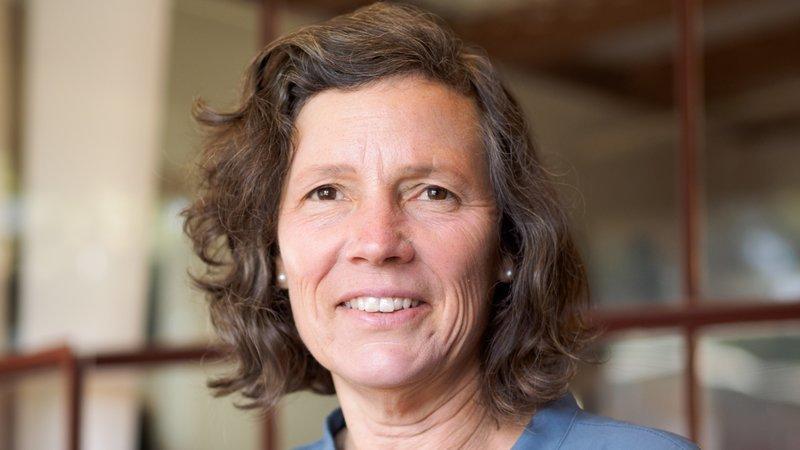
In early January, psychology professor Jennifer Freyd posted the following open letter addressed to the University of Oregon Board of Trustees:
Dear Trustees,
I am writing to share my concern about the UO’s handling of gender inequity among faculty, particularly in the Department of Psychology. I have worked at the University of Oregon for 33 years, and I deeply care about our institution. As I imagine you know, I have a lawsuit pending against the UO for the gender-based discrimination in pay I have experienced. In this letter, I hope to share my expertise from the perspective of a faculty member who has been impacted by these inequities and as a scholar of institutional response to gender discrimination.
I am concerned that in recent years, the UO has been responding in ways that increase rather than decrease inequities and that create more rather than less discrimination. I will summarize three examples of this pattern. (Further details, including my recent correspondence with President Schill, are provided here: https://jjf-archive.blogspot.com/ )
1. The University has failed to address a substantial pay inequity throughout the Department of Psychology that the department documented over four years ago. In early 2016 the psychology department provided a self-study document to the university describing a substantial pay inequity for full professors that puts women at a disadvantage. In August 2016 the psychology department head wrote a letter to the Deans of CAS conveying grave concerns over the inequity and requesting it be addressed, particularly in my case as the person experiencing the most egregious inequity. After the Deans refused to address the inequity, I filed a lawsuit in early 2017. As I recently explained to President Schill (correspondence archived https://jjf-archive.blogspot.com/), based on data provided by the department head in December 2020, in the past four years the inequity across the whole department has only grown.
2. The University has defended itself against my pay discrimination lawsuit through an argument that throws all academic women — including the UO’s own faculty and students — under the bus. The UO’s defense claims that I have a different job than the male professors in our department who are paid more, and therefore we cannot be protected by equal pay laws. This claim of different jobs contradicts 33 years of being explicitly compared to the other full professors in my department on the same criteria during merit review processes. The potentially devastating impact of this different jobs defense on academic women (and perhaps women in other professions too) should it become precedent led the American Association of University Professors (AAUP) to file an amicus brief. It also led a group of 47 women’s and civil rights groups, including Equal Rights Advocates, the ACLU Women’s Rights Project, and the National Women’s Law Center, to file an amicus brief. (The briefs are posted here: https://justicelawyers.com/womens-and-civil-rights-groups-file-briefs-supporting-professor-jennifer-freyds-equal-pay-act-case/ ) As the brief from the AAUP noted, if the decision for summary judgment is not reversed it would be “virtually impossible for faculty to bring a successful prima facie case of “substantially equal work” under the EPA or “work of comparable character” under the Oregon equal pay law.”
3. This year the University has invited some of us to partake in a retirement incentive program that embeds pay inequity into the program by basing incentive amount on current salary. In addition the program currently requires participants to release the UO from all claims. This chilling requirement is both a new injury for me — as I was invited to participate and then later told I could participate only if I drop my lawsuit — and a new form of discrimination for all those with a history of discrimination. The victims of discrimination are being asked to choose between their right to pursue justice in court versus take the incentive. Those who are privileged are not forced to make such a choice. Furthermore, the requirement that I drop my lawsuit in order to participate in the retirement program is uniquely injurious to me as I am, as far as I know, the only person with an ongoing lawsuit eligible for the incentive.
Each of these actions or inactions that push the institution towards greater inequity can be reversed through courageous leadership. For example, if the University took the following actions, it could not only stop harming its community in the ways I describe above, it could become a national leader in the fight towards equity (living up to one of the UO’s stated core values).
Solutions (a start, not the end):
1. University-level action to close the gender pay gap among professors in the Psychology department.
2. Withdraw the harmful and misleading argument that professors at a shared rank in the same department are not entitled to the protections of federal and state equal pay laws because every professor is unique, and instead pledge to support equity rather than inequity.
3. Change the release on the retirement incentive program from a release of all claims to a release of claims about the retirement incentive program itself.
4. Support sustained education for university leadership, faculty, and staff on the dynamics of discrimination and inequity along with ways to ensure equity, diversity, and inclusion.
I care deeply about the UO, which is why I am always trying to make it a better place for my colleagues and students. I know that with your help it can better live up to its mission to be a university that treats all its members equitably.
Sincerely,
Jennifer J. Freyd, PhD Professor of Psychology, University of Oregon Affiliated Faculty, Women’s Leadership Lab, Stanford University Founder and President, Center for Institutional Courage

